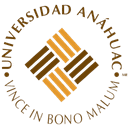This course is part of Fundamentos de Ciencia de Datos con R.
This introductory course provides a comprehensive, hands-on approach to learning R programming for data analysis and data science. R is one of the most widely used languages in data analysis, data science, and artificial intelligence fields. Mastering R is a key factor in developing competitive data-driven strategies for organizations. The course is designed with a practical focus from the start, featuring examples and activities that directly relate to tasks regularly performed by data analysts, such as data manipulation, visualization, and summarization. In today's data-rich environment where organizations generate millions of data points, proficiency in data analysis has become essential for maintaining competitive advantage and making informed decisions. This course equips you with the fundamental skills needed to use R for analyzing data in your organization or personal projects. The curriculum covers creating an R working environment with RStudio, data classification and manipulation from a data science perspective, versatile and simple graph creation, and basic programming in R language. Upon completion, you'll be prepared to apply these tools in practical scenarios and be ready to advance to more sophisticated R courses.
4.5
(14 ratings)
18,224 already enrolled
Instructors:
Spanish
Español
What you'll learn
Create a working environment for R with RStudio Classify and manipulate data from a data science perspective Create versatile and simple visualizations and graphs Develop basic programming skills in R language Import and summarize data from various sources Apply R functions to analyze and transform datasets Master data indexing and subsetting techniques Build custom functions to automate data analysis tasks
Skills you'll gain
This course includes:
PreRecorded video
Graded assessments, exams
Access on Mobile, Tablet, Desktop
Limited Access access
Shareable certificate
Closed caption
Get a Completion Certificate
Share your certificate with prospective employers and your professional network on LinkedIn.
Created by
Provided by

Top companies offer this course to their employees
Top companies provide this course to enhance their employees' skills, ensuring they excel in handling complex projects and drive organizational success.





There are 4 modules in this course
This course provides a practical introduction to R programming for data analysis. Over four comprehensive modules, you'll learn how to set up an R working environment with RStudio, understand different data types in R, create and manipulate data frames, and develop visualization skills using the powerful ggplot2 package. The curriculum begins with installation and basic setup before progressing to data structure creation, including vectors, matrices, and data frames. You'll master data import techniques and learn to generate various visualizations like scatter plots, bar charts, pie charts, and histograms. The course concludes with programming fundamentals in R, covering conditionals, loops, and function development. Throughout the program, you'll work with practical examples that simulate real-world data analysis tasks, preparing you to apply these tools in organizational or personal contexts. This course serves as an excellent foundation for those new to data analysis and programming, while also preparing you for more advanced R courses.
Módulo 1: Introducción
Module 1
Módulo 2: Creación de marcos de datos
Module 2
Módulo 3: Visualización de los datos
Module 3
Módulo 4: Programación en R
Module 4
Fee Structure
Individual course purchase is not available - to enroll in this course with a certificate, you need to purchase the complete Professional Certificate Course. For enrollment and detailed fee structure, visit the following: Fundamentos de Ciencia de Datos con R
Payment options
Financial Aid
Instructors

1 Course
Mathematics Educator and Data Analysis Specialist Enhancing Learning Through Advanced Mathematical Concepts
César Iván Cobos May holds a Master's degree in Mathematics from Texas A&M University and serves as a professor at Universidad Anáhuac Mayab. With extensive experience in teaching a variety of mathematics courses and data analysis, he is dedicated to enhancing students' understanding of complex mathematical concepts. His academic background equips him to effectively engage students in both theoretical and practical applications of mathematics, fostering a deeper appreciation for the subject in the context of real-world data analysis.

2 Courses
PhD in Industrial Processes and Energy at Universidad Anáhuac Mayab
Full Professor at Anáhuac Mayab University in the Department of Industrial Engineering, specializing in Simulation, Multivariate Analysis, Mathematical Models, and Numerical Methods, all using R and Python.
Testimonials
Testimonials and success stories are a testament to the quality of this program and its impact on your career and learning journey. Be the first to help others make an informed decision by sharing your review of the course.
Frequently asked questions
Below are some of the most commonly asked questions about this course. We aim to provide clear and concise answers to help you better understand the course content, structure, and any other relevant information. If you have any additional questions or if your question is not listed here, please don't hesitate to reach out to our support team for further assistance.



